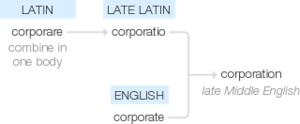Machines: Difference between revisions
From BurnZero
No edit summary |
No edit summary |
||
| Line 9: | Line 9: | ||
* A machine must obey the orders given it by human beings except where such orders would conflict with the First Law. | * A machine must obey the orders given it by human beings except where such orders would conflict with the First Law. | ||
* A machine must protect its own existence as long as such protection does not conflict with the First or Second Laws. | * A machine must protect its own existence as long as such protection does not conflict with the First or Second Laws. | ||
Revision as of 03:48, 5 April 2022
A machine is an enclosed collection of parts which exert force on each other to produce a desired outcome.
It is the commonality of the parts which define the machine i.e. the majority of parts in a drill press do simple tasks which synergistically make holes in things. This definition can also be used for a collection of people working together to make profit, such as a corporation.
Similarly, in the future a new General Artificial Intelligence machine might be invented however if its sole purpose was to make profit it could kill everyone on earth to do so. So if such a cybernetic machine were to be created it would need 3 preliminary rules which would be hierarchically gated:
- A machine may not injure a human being or, through inaction, allow a human being to come to harm.
- A machine must obey the orders given it by human beings except where such orders would conflict with the First Law.
- A machine must protect its own existence as long as such protection does not conflict with the First or Second Laws.
